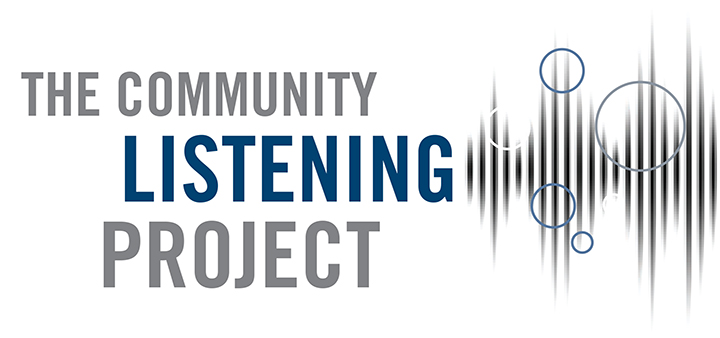
On April 4, 2016, the D.C. Consortium of Legal Services Providers announced the release of a comprehensive report on the myriad needs of and challenges facing low-income D.C. residents. The report, the culmination of a nearly three-and-a-half year "Community Listening Project," contains a wealth of findings that should impact how legal and social services providers-and the community as a whole-understand and respond to the experiences of people living in poverty. The report was authored by CUA Law Professor Faith Mullen and CUA Associate Professor and Chair of the Department of Sociology Dr. Enrique Pumar.
The report surveyed over 700 low-income residents D.C. residents. All survey participants had incomes at 200 percent or less of the federal poverty level, which is $24,300 for a family of four.
Key findings of the Community Listening Project include:
• Housing concerns were the most prevalent issue among survey participants, with almost two thirds of respondents saying that loss of housing and fear of homelessness was a constant concern.
• Low-income people in D.C. face significant barriers to decent paying employment, with almost half of the respondents experiencing employment problems, most significantly the inability to find work.
• The notion that unemployed people living in poverty are not trying to find work is false: Very few survey participants (5.8%) who were unemployed, including those considered long-term unemployed, had stopped looking for work.
• Full-time employment did not mean avoiding financial hardship. Almost half of those surveyed who reported they were working full time also experienced trouble paying their bills, and a similar number reported at least occasional uncertainty about having enough food.
• More than half the survey participants receive at least one public benefit.
• Crime is a serious problem. Three out of ten survey participants had been the victim of a crime in the past two years, and one in six had experienced gun violence.
On April 4, 2016, the Washington Post ran an article titled, "Being poor in Washington means worrying about housing, survey finds," discussing the report's findings.
To find the survey participants, Mullen said, law students and community members held focus groups and went into neighborhoods to conduct the surveys, which lasted about 20 minutes. Many of the questions were open-ended, and Mullen said the wording was crucial.
"We asked them to tell us about their biggest problems, not legal issues, because a lot of people who will tell you about their most terrible problems will tell you that they don't have any legal problems," she said. "This was an effort to find out where the needs are from the perspective of people who actually need it."
Also on April 6, the Washington Post published an Op-ed titled Will the District's budget recognize the struggles of low-income residents?,
